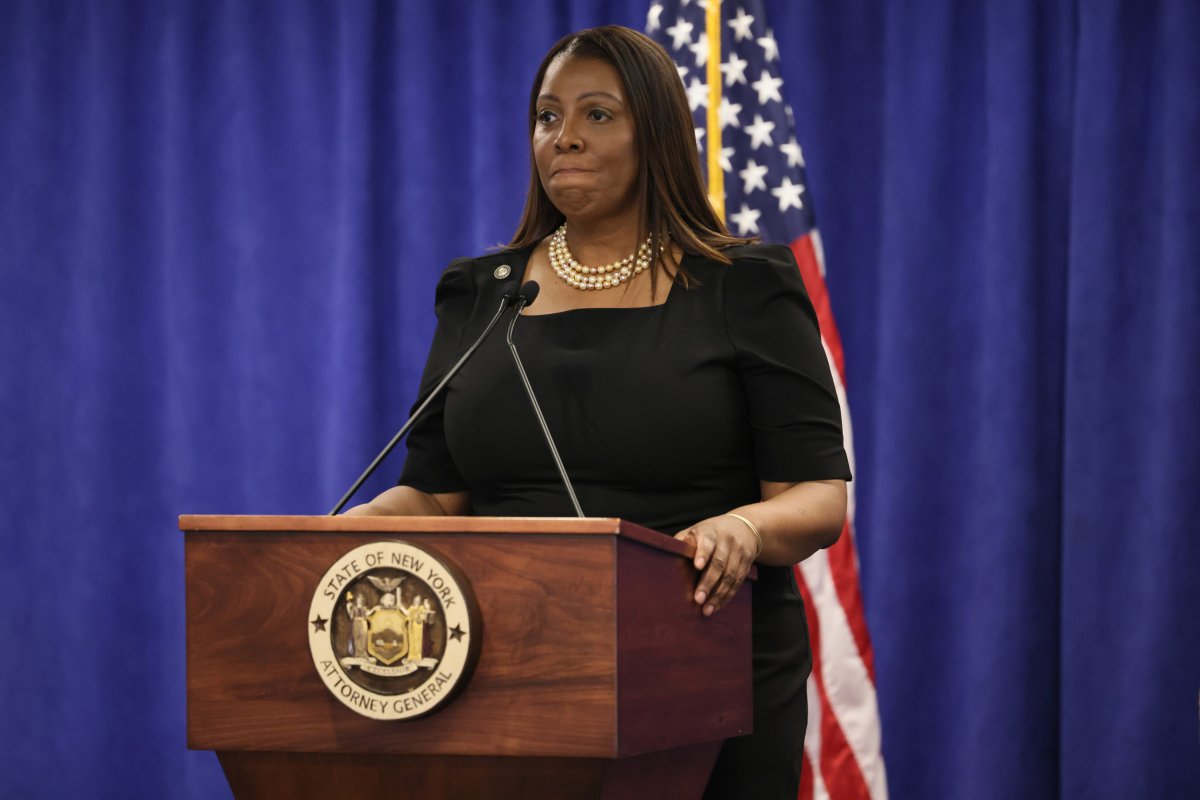New York Attorney General Letitia James has recently made headlines with her response to former President Donald Trump's bond issue. The situation revolves around a $175 million bond that Trump attempted to secure, which was ultimately rejected. This bond is critical as it relates to ongoing legal disputes involving the Trump Organization and allegations of financial misconduct.
In a new legal filing, James raised concerns regarding the sufficiency of the surety provided by Knight Specialty Insurance Company (KSIC). She emphasized that the bond was issued without a necessary certificate of qualification in accordance with Insurance Law. This revelation has prompted questions about whether KSIC has the financial capability to support such a large bond, leaving many curious about the implications for Trump as he navigates these legal waters.
The legal landscape surrounding this situation is complex and deeply intertwined with Trump's broader legal challenges. In 2022, James initiated a civil fraud trial against Trump, his adult sons, and The Trump Organization, accusing them of inflating their net worth and property values to secure favorable loans and insurance terms. This ongoing saga not only impacts Trump's finances but could also have significant repercussions for his political aspirations.
The Context of the Bond Rejection
Attorney General Letitia James has been at the forefront of legal actions against Trump, culminating in a civil fraud trial that began in 2022. The allegations include claims that Trump and his associates inflated the value of their properties and net worth, which potentially allowed them to benefit from lower loan rates and insurance premiums. The court's recent ruling against Trump, mandating him to pay $454 million, adds another layer of urgency to the situation.
Judge Arthur Engoron has ruled against Trump, stating that he must pay hefty penalties, which include $355 million and nearly $100 million in accrued interest. Despite these rulings, Trump remains defiant, claiming that the legal proceedings are a politically motivated witch hunt aimed at damaging his reputation and his prospects for the upcoming 2024 presidential election.
In a post on Truth Social, Trump expressed his frustrations, portraying himself as a victim of a corrupt judicial system. He argued that the bond he posted was based on dubious legal practices and claimed there were no actual victims in this case—only himself. This narrative reflects Trump's consistent strategy of framing legal challenges as politically motivated attacks.

Understanding the Bond and Its Implications
On the surface, the bond Trump attempted to secure with KSIC was meant to protect his assets from seizure during ongoing litigation. This bond is critical as it allows Trump to maintain some level of financial liquidity while facing serious legal challenges. However, the court's rejection of the bond raises questions about Trump's financial strategies and the viability of his defense in these high-stakes legal battles.
James has pointed out that the bond's rejection stems from KSIC's lack of a certificate of qualification in New York. This is significant because it means that the insurance company may not be legally able to back such a substantial bond in the state. The implications of this situation could be far-reaching, not just for Trump but for the broader context of how business dealings are conducted in the state.
Furthermore, the bond's rejection has led to additional scrutiny of Trump's financial dealings, including what collateral he might have offered to secure the bond with KSIC. Legal experts are concerned that if KSIC cannot fulfill its obligations, Trump could face severe financial consequences. This situation will likely evolve as both parties continue to navigate the complexities of the law surrounding surety bonds.
Next Steps in the Legal Battle
As the situation unfolds, a New York appellate court has granted Trump a 10-day window to address the bond issue. This means he must act swiftly to either provide a valid bond or face the potential risk of losing critical assets. The timeline of this legal battle is crucial, as any delays could affect the outcome of the broader fraud case against him.
Additionally, James's office has filed a notice of exception to the surety, which demands that either Trump or his legal team demonstrate that KSIC can fulfill its financial obligations if the judgment creditor files a notice of exception. This requirement places further pressure on Trump, as he must not only secure the bond but also prove the financial reliability of the insurance company backing it.
As we continue to monitor this case, the actions taken by both Trump and James will set a precedent for future legal proceedings involving high-profile figures and their financial dealings. The landscape of legal accountability is shifting, and the outcomes here could have implications beyond just this single case.
Alvin Kamara's Tough Season: Overcoming Injuries To Shine On The Field
Candace Cameron Bure Shines A Spotlight On Olympic Medals In Recent Instagram Story
Navigating The Moon's South Pole: NASA's Artemis III Mission And Its Historic Landing Regions


